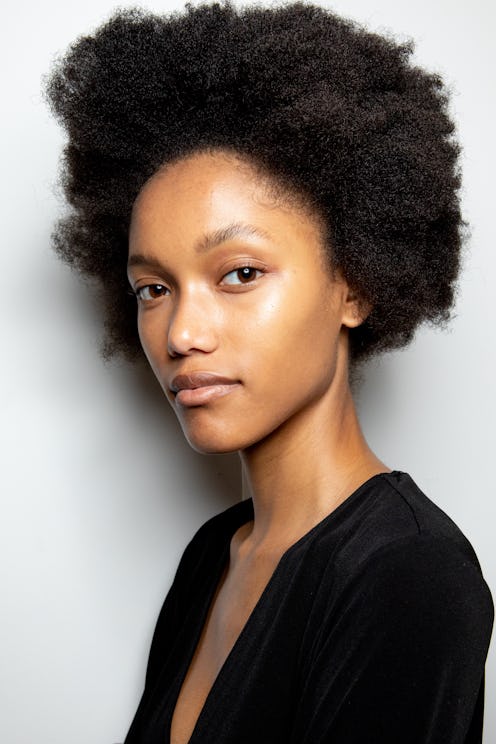(Beauty)
You Probably Have This Acne Spot Treatment In Your Kitchen Cabinet Right Now

While we may have less access than ever before when it comes to beauty appointments, the creativity around substituting them remains unhindered. Many of us are tapping into our inner cosmetologist, aesthetician and chemist, surprising others — and even ourselves. And as our facial appointments remain cancelled, with no definitive timeframe of when they'll resume, some are discovering that the best DIY beauty treatments come from ingredients in our pantry and refrigerator.
The experts agree one of the best ways to take care of your skin during this time is with natural ingredients that are already staple in many homes. "Especially in a time of social distancing, going to a drug store may not be at the top of your list," Dr. Zeichner, MD, a New York City dermatologist, tells TZR. "This makes everyday items that you already have in your pantry more appealing to use than ever."
However, not all of the ingredients we frequently see used in at-home beauty, especially across social media, are actually good for our skin. "Coconut oil is great on the body and hair for moisturization, but not good for the face as it can clog pores and cause breakouts," Dr. Michelle Henry, MD, a celebrity dermatologist based in New York City, says. And Dr. Zeichner insists staying away from baking soda, a common addition to at-home face scrubs, as it can severely damage skin's pH levels. "While baking soda has been touted to help treat your acne, I recommend avoiding it," he says. "Composed of sodium bicarbonate, it is extremely alkaline in pH and can disrupt the naturally acidic pH of the outer skin layer. Ultimately this can lead to dryness, irritation, and inflammation."
So ahead, check out the things already laying around in your kitchen that will help hold your skin over until everything opens back up again.
We only include products that have been independently selected by The Zoe Report’s editorial team. However, we may receive a portion of sales if you purchase a product through a link in this article.
DIY Beauty Treatment: Tea Tree Oil Serum
"Tea tree oil can be used on the face and neck as a natural anti-inflammatory, anti-bacterial, antimicrobial and anti-fungal serum," Dr. Henry says. The experts suggests applying at night because of the strong scent, and mixing with a gentle moisturizer to prevent dry out.
DIY Beauty Treatment: Honey Face Mask
Raw honey is one of the most potent natural sources for moisture. Packed with enzymes and vitamins, it's been proven to reduce breakouts and even heal wounds. "It can be used as a spot treatment for everything from skin burns to inflamed pimples," Dr. Zeichner says. One of his favorite ways to utilize the ingredient, though, is a simple mask with other natural ingredients such as oatmeal as it can help hydrate, protect, and calm inflamed skin.
DIY Beauty Treatment: Avocado Face Mask
Containing vitamins A, D and E, this penetrative and soothing fruit makes for the ideal face mask. "Use and avocado and mix it with yogurt and honey for an all natural, hydrating mask," Dr. Zeichner says.
DIY Beauty Treatment: Rolled Oat Bath Soak
"Oats have long been used in skincare for their protecting and anti-inflammatory properties," Dr. Zeichner says. "Natural sugars coat and soothe the skin while compounds known as avenanthramides provide anti-inflammatory and antioxidant benefits. You can use it as a bath additive or form a mask by adding a small amount of water and placing on the face."
DIY Beauty Treatment: Apple Cider Vinegar Sugar Scrub
"For a quick at-home fix, I like to create a facial scrub by mixing two tablespoons of raw sugar, one tablespoon of apple cider vinegar and four tablespoons of raw honey," Dr. Henry says of her favorite at-home elixir. "The sugar gently exfoliates, while the honey hydrates and the ACV contains highly beneficial acetic acid and vitamins."
Experts:
Dr. Michelle Henry, MD, of Laser & Skin Surgery Center of New York in New York City.
Dr. Joshua Zeichner, MD, of Zeichner Dermatology in New York City.
This article was originally published on